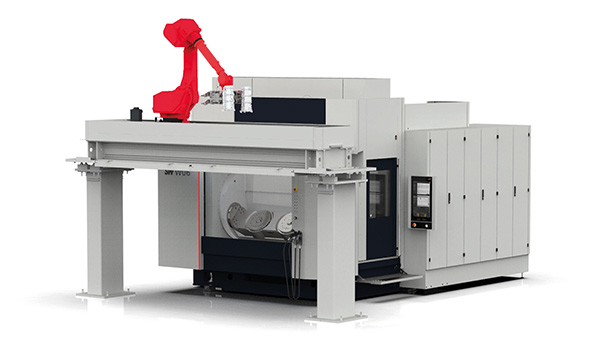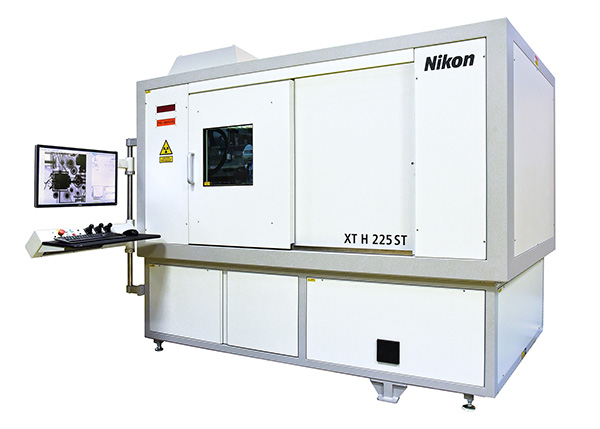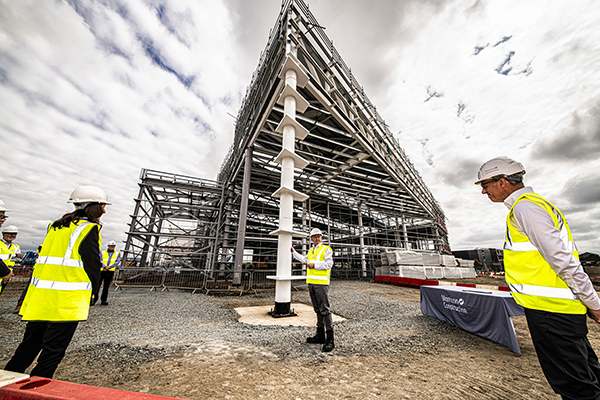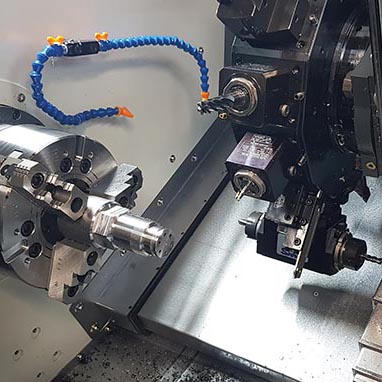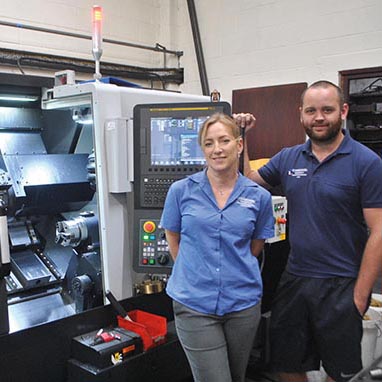
Mills CNC, the exclusive distributor of Doosan machine tools in the UK and Ireland, has recently supplied EDM precision subcontract specialist – Erodatools Ltd – with three new Doosan machine tools: two compact multi-tasking Lynx lathes (a Lynx 2100LSYB and a Lynx 2600Y) and a DNM 6700 vertical machining centre.
“The new machine shop complements the EDM side of the business,” says machine shop manager Jon Harper. “It’s run on the same business principles and company values that have served Erodatools well for almost 50 years – namely a commitment to continuous improvement, ‘best-in-class’ quality and unrivalled customer care.
“We wanted to expand our customer base to include non-EDM users, and offer them the same high-quality CNC milling and turning services,” he continues. “Doosans are high-performance machines. They are accurate and reliable and, in my experience, do not miss a beat.”
The first Doosan acquired by Erodatools was a Lynx 2100LSYB. This 8-inch chuck, FANUC-controlled compact lathe is equipped with a 15 kW/4500 rpm main spindle, a 5-inch chuck 6000 rpm sub-spindle, a 24-position/12-station turret, 6000 rpm driven-tool capability and a ±52.5 mm Y-axis stroke.
“The Lynx 2100LSYB is a multi-tasking lathe that, with its live tooling and sub-spindle, can machine small parts to completion in a single set up,” says Harper. “It operates as a de facto self-contained turning cell.”
Since then, Erodatools has installed a Lynx 2600Y which, incidentally, was one of the first in the UK. The Lynx 2600Y, again with the latest FANUC control, is a 12-inch chuck lathe with a 18.5 kW/3500 rpm spindle, a 24-station turret, 5000 rpm mill/drill capability and a ±52.5 mm Y-axis stroke.
For further information
www.millscnc.co.uk







